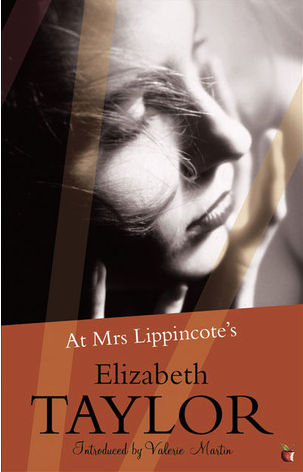
Published in 1945, At Mrs Lippincote’s was Elizabeth Taylor’s first novel. It’s my fourth Elizabeth Taylor novel and while it’s not my favourite, I liked it a great deal. It’s as sharp and witty as the others and a subtle exploration of truth and hypocrisy in wartime England, a time when the English society and its conventions changed rapidly. At the heart of the novel is the story of a marriage in dissolution. Julia and Roddy Davenant, and their son, live at the house of a widow, Mrs Lippincote. Her house is a stuffy house, filled with mahogany furniture. Roddy, who is in the RAF, was stationed in London before. His superior sent him to the countryside, hoping it would help save his marriage.
Julia is a great character. At times she’s a little intimidated by the formidable-sounding Mrs Lippincote and all the officers her husband works with, but most of the time, she just doesn’t care about convention and says so. This quote captures her particularly well:
Julia had a strange gift of coming to a situation freshly, peculiarly untarnished by preconceived ideas, whether of her own preconception or the world’s. Could she have taken for granted a few of those generalisations invented by men and largely acquiesced in by women (that women live by their hearts, men by their heads, that love is a woman’s whole existence, and especially that sons should respect their fathers), she would have eased her own life and other people’s.
Julia spends most of the time alone with her son or walking the small town at night, on her own, while her husband pretends he’s at his club. These nightly walks, more even than the way she expresses herself, shock her husband as they show an independence he doesn’t care for. He, who is anything but a model husband, hides his own shortcomings behind his hypocritical outrage. Her outings are quite harmless, although people start to talk because she’s visiting a man. Mr Taylor is someone they once knew in London. He’s the most tragic figure in this novel. He was the manager of an elegant restaurant in London but he has lost everything. His restaurant, his home, and his health. He is now the owner of a shabby pub. He and Julia are possibly the only really honest people in this novel. All around them people seem to be pretending: that they have a better status than they really have; that they are faithful and morally superior or that they aren’t afraid of anything.
Here’s Mr. Taylor’s take on this.:
“Bombed out” is a phrase the world was now used to. “But you were lucky,” people would say, “not to have been sleeping there.” “No one was hurt,” he would say. It was like a game of tennis, that sort of conversation: the ball went back and forth but no one was really involved, the expected replies were dealt and after the game had been kept up for a while, the other side tired, and feeling it had done well, changed the subject. But the truth had not been spoken. Had he suddenly said: “My life ended just he same, whether I was killed or not. This that I have now means nothing to me and has no value,” they would still not have understood.
“And then, ” he continued, “there are all the people who refuse to have their morale destroyed. They are the worst part of the whole affair. Sometimes you feel it would be such a relief to say you’re frightened, but those awful people stop you. You go about all day longing to tell someone you’ve lost your nerve, or to hear someone say the same thing to you, but it never happens.”
Julia is so honest that she doesn’t even have illusions when it comes to herself:
“I think I am going on up, willy-nilly. This morning I read in the paper about something vile the Nazis did, and I thought: “It’s all right. It’s not as bad as the atrocity I read about last week.” I was very much shocked at myself.”
“War does that for one.”
“Yes. That’s what I said. The contemplation of brutality brutalises. ( . . . )”
Like in all of Elizabeth Taylor’s books, the best parts are the characterisations. She shows us people and their foibles and follies. There are some great, eccentric characters in this book.
Elizabeth Taylor is always astute and unmasks her character’s with her sharp mind. In this novel she unmasks a whole society and era – wartime England and all the small and big lies people tell themselves and each other. I think her subtle description of the mentality of the time – this clinging to the old conventions – the fear of the new – the stress of the war – is stunning. It’s what makes this a truly remarkable book.
